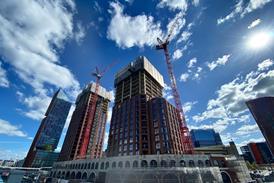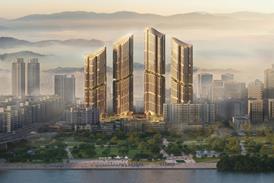Annual survey raises concerns about pay for part Is and senior women
Architects’ salaries have failed to keep up with inflation – and the biggest rises have been scooped up by the most senior staff, according to a new salary survey.
Salaries rose on average by 2.6% this year – more than had been predicted but still below inflation which climbed to 3% in September.
Junior staff saw very little of this. Part Is are still on average earning just over £20,000 – often far less outside London. Nearly 12% of part Is across the country are earning less than the “real Living Wage”, with that figure falling to 5.3% in London.
An architect with five years’ experience earns on average £35,717, just £150 a year more than in 2016.
The annual survey, by 9B Careers, polled 1,350 architectural staff from across the country.
It found that while there is no gender pay gap for junior staff, five years after qualification, there is a noticeable shift with women consistently earning less and receiving significantly fewer bonuses.
Men are more likely to get a bonus in all sizes of practice. Women can improve their chances of receiving a bonus by working for firms with 11-35 staff or 100+.
“Although it appears there have been great efforts to improve the culture within architectural practices to make the industry more appealing to women, there are obviously areas which have some way to go,” said Paul Chappell, director of 9B.
At all levels of experience, salaries are highest in the biggest firms, with more than 100 staff, and in London.
The survey also showed that it pays to qualify. Getting your part III can bring a salary uplift of £4,200.
Architects working for contractors are on the biggest money – on average nearly £100,000 with 11 or more years’ experience. Salaries at developers and other firms on the client side are also higher than in architectural practices. Wages are lowest in government.
Chappell said so far the shocks of Brexit, Trump and the second general election had failed to hit the economy and there was a particularly large number of practices actively recruiting at the start of the year.
“This is not to say Brexit has not had a big impact,” he added. “Sadly, many EU architects have said the UK no longer holds the same appeal and have since left the country.
“If workloads stay strong and architects continue to leave at the same rate, skills shortages will soon arise and practices will have to compete even harder to attract the best staff. This may have an impact on salaries but when most firms are feeling pressures on fee levels, there may be little room to manoeuvre.”













9 Readers' comments